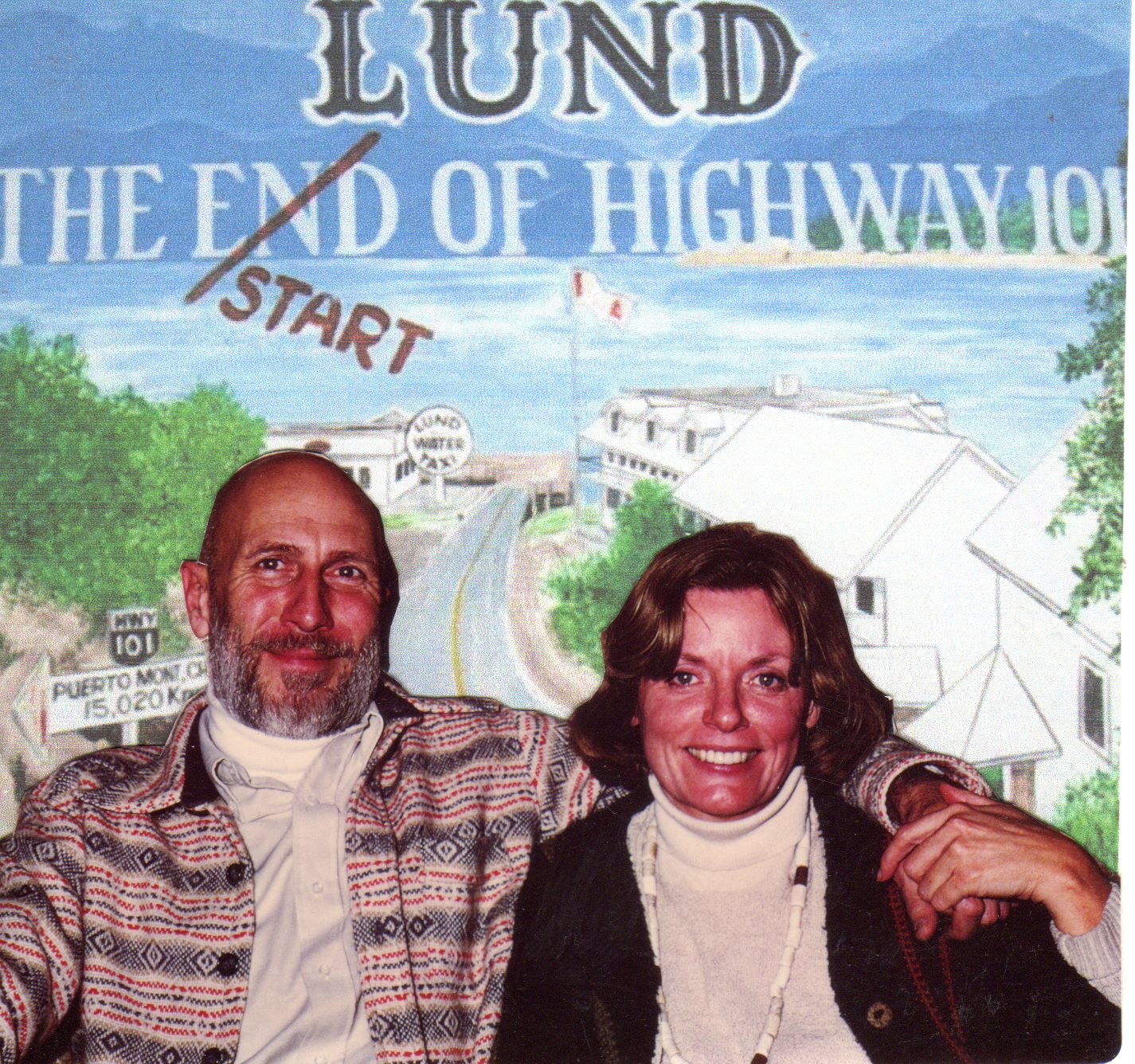GEODUCKS AND THE LIVING ROOM OF LUND
CATEGORY: SAILING
PHOTO: LUND AND THE START OF HIGHWAY 101

Lund is a nice little village on the British Colombia coast north of Powell River, which in turn is north of Vancouver BC. Lund is the northern end of the coast highway. The coast north of Powell River is called “The Sunshine Coast” because of the long sunny summer days. We could swim right off the boat any place along it in delightful sun-warmed water.
We tied up at the Lund dock about 9:00 o’clock one morning, having anchored nearby the night before. Someone had told us there was a 24 hour tavern there, and that it was a good place to eat. We decided to give it a try for breakfast.
On the way up the dock we stopped to watch a fishing boat unload. It was a large boat and it was full of crates of geoducks (pronounced gooeyducks). The crates were large–about four ft. square and thirty inches high. Geoducks are giant sized clams about nine inches long and five inches wide. They have a huge neck that sticks out one end. Workers were lifting the crates off the boat with a crane attached to the boat, and stacking them three high on a flat-bed truck. The geoduck necks were flopping over the edge of the crates and the next crate would be set on top, right on the necks, smashing them. I flinched, thinking of the pain the creatures must experience, and because the necks looked so much like very large limp penises, magnifying the pain in my mind.
Someone standing on the dock, part of the sidewalk brigade, told us that usually geoducks were very hard to catch because they live so deep in the ground, but there was a new way of harvesting them. They have a power hose on the boat and divers go down and blast the soil away from the beds with jets of water. They find hundreds of gooey ducks and throw them in the crates, lift the crates onto the boat with its own crane and bring them to market. This load had been acquired early that morning.
By the time the truck was loaded, its bed was sitting all the way down on the tires. Obviously the truck could not be moved. When we commented on this, the man standing next to us just shrugged his shoulders.
We went into the tavern for breakfast. People who looked like they had been there all night were still, or again, drinking at this hour of the morning. One of the drinkers, very friendly, came over, beer in hand, and sat down at our table. He said he had been living in Lund for about three years doing odd jobs and getting jobs on fishing boats. He said he spent most of his at-home time in this tavern. He said, “This is the living room of Lund. Everybody comes here.”
When we left the living room of Lund to go back to our boat, the truck was still sitting on the dock with its bed on the tires. Due to our long breakfast of pancakes, bacon, eggs and conversation, much time had passed. It had gotten hot. This was the Sunshine Coast. Poor geoducks.
What with the new harvesting methods, I wonder if there are any geoducks left on the whole of the Sunshine Coast. The way the free enterprise system works in North America is that all natural resources are harvested until there are so few of the thing being harvested left that harvesting them is no longer profitable. At that time harvesting stops. If there are any of the harvestees left, perhaps they can recover naturally and perhaps they can’t. It usually is irrelevant to the harvesters.
